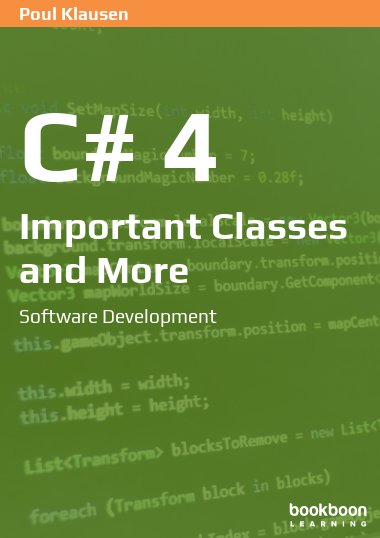This book is about OOP in C# and is a continuation of the previous book, and the current book assumes a knowledge of OOP corresponding to the content of C# 3. The book deals with the implementation of strings in C# and else describes generic types and in relation to that, collection classes, but also concepts as delegates, lambda expressions and operator overriding.Click here to download the source files from this book.

